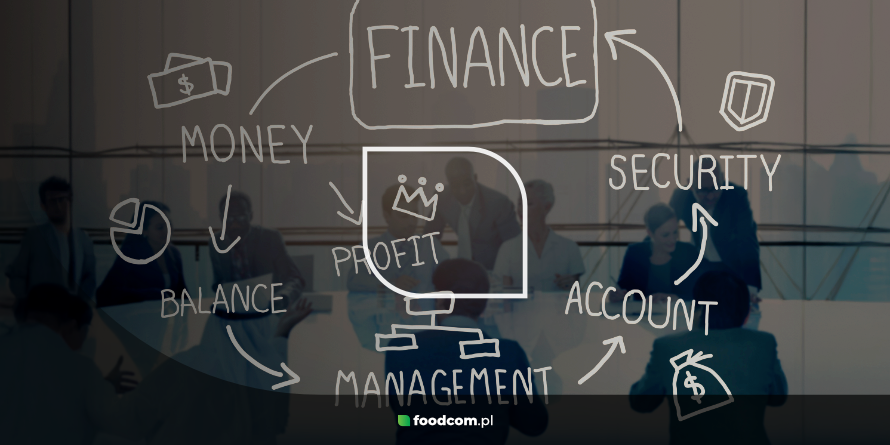

TABLE OF CONTENTS
- Knowledge of B2B purchasing processes
- The ability to build and maintain business relationships
- Market analysis and knowledge of the customer's industry
- ESG and sustainability competencies
- Negotiations and contract management
- Financial skills and working with large contracts
- Knowledge of B2B sales and marketing tools
- Examples of applying competencies in practice
- What to do now?
The B2B industry is a world where decisions are made slowly and where long-term contracts and large sums of money are at stake. Trust, credibility, and professionalism carry more weight here than advertising or attractive prices. In 2025, a good offer will not be enough to succeed; the skills of employees and leaders will be decisive.
It is therefore worth taking a look at the skills that will determine competitive advantage in the coming months. These skills will determine whether a company will gain new partners and retain existing customers, or fall behind its better-prepared competitors.
Knowledge of B2B purchasing processes
The purchasing process between companies differs significantly from the consumer market. It involves not only price analysis, but also long-term costs, security, and the impact on the strategy of the entire organization. It usually takes many weeks or months before a contract is signed, and several people work on the decision—from specialists, through the finance department, to the management board.
That is why it is so important to understand the purchasing cycle and the role of individual decision-makers. A salesperson or manager who can properly plan the stages of negotiations, prepare various arguments, and patiently guide the process has a better chance of success. Knowledge of this mechanism also allows you to avoid mistakes such as overlooking key people or pushing too hard for a decision.
What’s more, a good understanding of purchasing processes also means being able to manage your own time. Those who understand how long each stage can take find it easier to maintain customer relationships and don’t waste energy on activities that don’t make sense at a given stage of the negotiations.
The ability to build and maintain business relationships
In B2B, it is rarely about a one-time transaction. Most often, cooperation is based on long-term contracts and regular contact. That is why relationship-building skills are so important: the ability to listen, adapt to the customer’s style, and respond to their needs.
An employee who acts as a salesperson, partner, and advisor to a contractor provides the company with an advantage that is difficult to replicate.
It is customer loyalty and trust that make an organization resistant to competition.
Market analysis and knowledge of the customer's industry
An effective B2B specialist must know both their own product and the specifics of the industry in which the customer operates. Legal regulations, new technologies, and cost pressures all influence a contractor’s decisions. The ability to analyze the market makes the offer more credible.
A conversation with a customer who feels that their supplier understands their challenges looks completely different. It is no longer a product presentation, but a partnership-based discussion about solutions tailored to a specific business situation.
ESG and sustainability competencies
More and more B2B contracts today take into account environmental, social, and corporate governance aspects. Companies that can demonstrate compliance with regulations and present real actions in the field of sustainable development gain an advantage in tender processes. This is why competencies related to understanding ESG standards, the ability to report on environmental and social activities, and translating them into business value are becoming so important. Specialists who can speak the language of responsibility and credibly present their company’s activities become valuable support in conversations with clients.
Negotiations and contract management
B2B negotiations are a multidimensional process. Price is only one element; payment terms, level of technical support, warranty conditions, and contractual penalties are equally important. Each of these aspects affects the final value of the contract and the satisfaction of both parties.
That is why people who can conduct negotiations in an orderly yet flexible manner will be highly valued. It is important to be able to listen to the other party, propose compromises, and maintain a balance between the interests of your own company and the expectations of the customer. This is a skill that requires practice and experience, but it brings great results.
Contract management does not end when the contract is signed. You need to be able to monitor agreements, respond to changes, and ensure that the cooperation proceeds according to plan. Those who can maintain a high level of service at every stage build a reputation as a reliable business partner.
Financial skills and working with large contracts
In B2B, contract amounts are many times higher than in retail sales. That is why it is so important to have a basic understanding of finance – to understand indicators such as ROI, TCO, and margin. This makes it easier to talk to decision-makers on the customer side, who often look at an offer mainly through the prism of numbers.
A specialist who can justify the value of a proposal in financial terms gains greater credibility. This is a skill that builds a bridge between the technical and management sides and allows the company to compete more effectively for large contracts.
Knowledge of B2B sales and marketing tools
Digital tools have changed the way companies operate in B2B. CRM systems, lead generation automation, account-based marketing platforms, and data analytics have become commonplace. Specialists who can use them can identify customer needs more quickly and personalize their offers.
Using these solutions requires a technical and strategic approach. Data from CRM or marketing systems allows for better planning of activities, measuring of results, and making more accurate business decisions. This gives the company an advantage that cannot be achieved by intuition alone.
In 2025, digital skills in sales and marketing will no longer be “welcome,” they will become an absolute requirement. Companies that fail to keep up with this change will lose ground to more savvy competitors.
Examples of applying competencies in practice
B2B negotiations can be a perfect example of how competencies translate into results. A technology company that, instead of focusing solely on price, offered its customer flexible payment terms and after-sales support, won the tender despite a higher hourly rate. Market analysis works in a similar way – a logistics provider who understood the impact of rising energy costs on the customer’s business proposed intermodal transport, which gave him a competitive advantage and a new contract. Finally, business relationships can determine access to the largest projects. A sales representative who had supported a customer with knowledge and advice for years was invited to participate in a large strategic project without a formal tender, precisely because of the trust he had built up.
What to do now?
Employees who want to prepare for the challenges ahead should focus on developing their skills. Training in negotiation, project management, or financial analysis will quickly translate into better results and greater confidence in their daily work. It is also worth developing the ability to use digital tools – CRM, marketing automation, and data analytics are now essential elements, not extras. Knowledge related to ESG is also becoming increasingly important, as it is increasingly decisive in the success of negotiations and the maintenance of contracts.
In 2025, the winners will be those specialists who best understand their business partners and are able to respond to their needs. They will gain a competitive advantage and build lasting relationships with customers.



